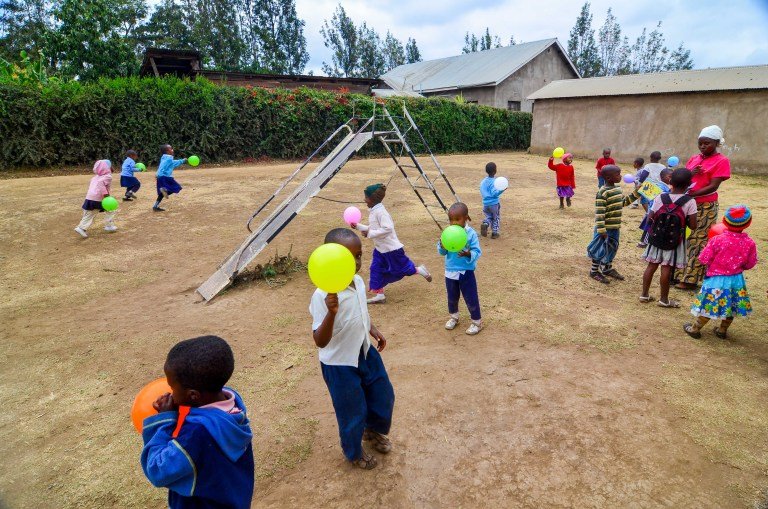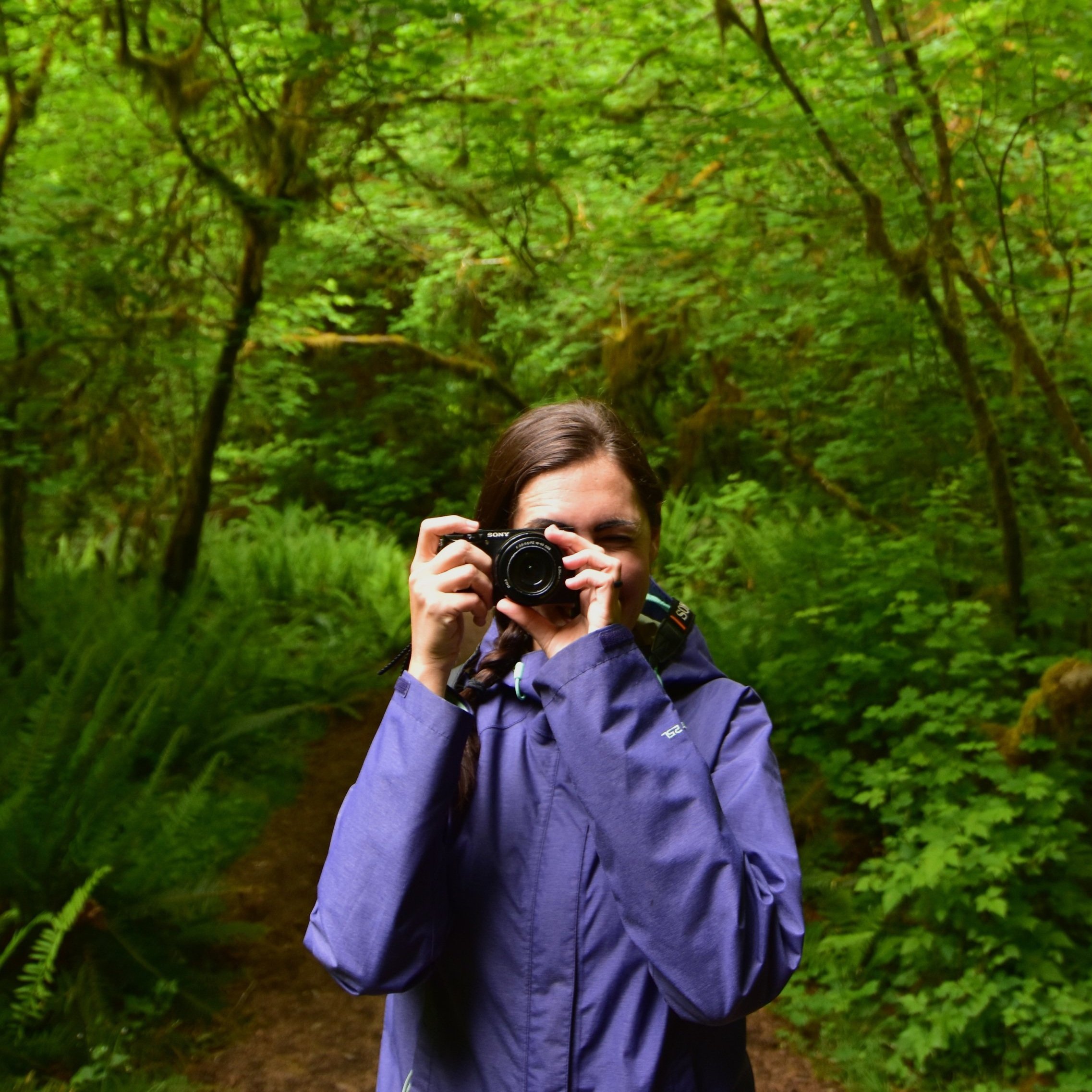Should I Volunteer Abroad? 5 Questions to Ask Yourself First
We’re inundated daily with images and stories of people in desperate need in countries distant from our own. And because people are fundamentally good, we want to help – and it’s deceptively easy to hop on a plane and volunteer abroad ourselves.
That urge to help with your own hands is admirable. But there’s so much more that goes into volunteering abroad than meets the eye. I used to think that anyone who felt compelled to serve overseas should do it. After over a decade of travel and volunteering all over the world, I don’t think that anymore.
Despite the noblest of intentions, it’s incredibly easy for foreign volunteers to do more harm than good. (Like performing medical procedures without training or exposing vulnerable children to harm in orphanages.)
In order to successfully volunteer abroad, you’ll have to get comfortable being uncomfortable. And that starts with genuinely examining your own motivations and intentions.
So if you want to volunteer abroad, answer these questions honestly first:
Am I qualified to do the job I’m signing up for?
Here I am teaching primary school in Tanzania years ago, before I knew better. Was I a certified teacher? Nope. Was I doing a better job than a trained local educator would have? Certainly not.
Just because you’re volunteering in a developing country, doesn’t make it appropriate for you to do a job that you wouldn’t be allowed to do in your home country. Whether it’s teaching, providing medical care, or building houses, you may be ineffective at best or dangerous at worst by attempting work that you’re not qualified to do. Ask yourself: Would you want to be stitched up by a pre-med student, or let your kids learn science from a college freshman on break? Would you feel comfortable living in a house that you built yourself?
Even playing with kids at an orphanage (which doesn’t require specialized skills) is problematic. On the surface it seems like any positive interaction would be beneficial, but in reality that’s not the case. Ever wondered why you don’t see many orphanages in developed countries? It’s because they’re not great places for children to grow up.
Oftentimes orphanage volunteering programs aren’t really what they seem, and may be exploiting the very children you think you’re there to help. Orphanage tourism has become an industry in which kids are the commodity. With more orphans needed to meet the needs of paying volunteers, there’s an incentive to put vulnerable children in institutions rather than finding them homes with extended family or foster care. For example, the number of orphanages in Cambodia has increased by over 75% since 2005, while the number of actual orphans has decreased – meaning many of the children in these institutions are not, in fact, even orphans. (Watch this great short video for a quick explanation of why you shouldn’t volunteer at orphanages.)
So: If you wouldn’t do this job at home, don’t do it abroad. Make a list of your skills – Are you great at photography, building a website, social media…? If you really want to volunteer abroad, offer those skills to a non-profit organization that could use them. Because trust me, you don’t want me building your website any more than I want you stitching my head wound.
Would I still want to volunteer abroad if I couldn’t take ANY photos?
Truth time: You’re going to get all your friends and family commenting on your Instagram photos of those adorable African children, telling you what a wonderful person you are for spending time with them. If that’s why you’re doing this, stay home.
I’ve seen more than one volunteer post a photo of themselves with a group of children, alongside a caption that reveals their HIV status. Would you want your kids’ image and personal information posted on the internet by whoever is caring for them?
I’m not saying you shouldn’t post any photos; I’m saying this isn’t about you. Hopefully your motivation for volunteering abroad is to genuinely make a difference in the community where you serve.
Here’s a satirical taste of what I’m talking about:
Will my work continue to benefit the local community after I leave?
My first medical mission was to help with a three-day free clinic in the Kibera slum of Nairobi, Kenya. We stitched wounds, treated infections, pulled teeth, and addressed the medical issues of a huge crowd of people each day. Then we went home.
What happened to all those patients after we left? Did those with chronic medical problems get follow-up care, and did the kids whose teeth we pulled start brushing and flossing every day? Or did we essentially slap a band-aid on a gaping head wound, pat ourselves on the back, and walk away?
I’m not saying we didn’t do any good. Certainly folks were relieved to have their immediate issues addressed for the moment. But we missed an opportunity to try to address the problem at its root.
Volunteer programs that don’t focus on long-term sustainability can make developing countries dependent on foreigners. Why build a community clinic or hire a local teacher, when Western volunteers will come sporadically and do the work for free? If you really want to make a difference, ask yourself if your presence will truly leave the community better off than you found it. For example, I recently volunteered at refugee camp clinics in Uganda to mentor local nurses so that they can provide better care for their patients even if no foreign volunteers are around.
DO: Work with awesome Ugandan midwives instead of doing their jobs for them so that they’ll care for their community even better long after volunteers have gone home.
DON’T: Bring toys to hand out to students, disrupt class for an entire day, leave a bunch of trash behind, and go home feeling great about yourself because you have cute photos of African kids with balloons. Did this really make sustainable change for these kids?
Is my motivation for volunteering abroad appropriate?
BE HONEST. Many people use volunteer trips to build their resumes, gain experience without all the red tape of a developed country, or just to have awesome stories to tell people back home. I know that as a nursing student, I had opportunities to do procedures in Kenya that I would never have been allowed to do at home in the US.
And let’s not forget the fact that the vast majority of Western volunteers are white, while the vast majority of those they intend to “save” are people of color. When American high schoolers spend their days building libraries in Tanzania, only to have locals take down the bricks and re-lay them correctly each night, we have to wonder: What makes us think American kids are inherently better than Tanzanian construction workers at laying bricks?
This should go without saying, but being white doesn’t automatically make you useful. Now, of course I don’t believe that most volunteers think this consciously. But developing countries have been characterized as so inherently helpless that visitors from developed countries think that as long as we have good intentions, we can’t possibly do any harm.
Uncomfortable as this is to contemplate, we need to acknowledge that we’ve been subtly taught our whole lives that our dumb luck at being born in a developed country somehow makes us better, wiser, or smarter than the people in the communities we hope to serve. Volunteers often see themselves as benevolent saviors rather than equals working in partnership with locals. If you don’t want to grapple with these issues, please do not volunteer abroad.
In this great interview, Ugandan social change advocate Teddy Ruge argues that “it’s the infantilization of a continent with 54 countries and a billion people and in thinking that we are a continent that cannot help itself. So, it’s everyone’s responsibility – and by everyone, I mean every white savior out there who feels like they buy into this narrative that Africa is completely helpless […] Yes, we are a young continent, but we’re not a stupid continent and it worries me that if we continue to let these kind of narratives go, that half the continent that is under 15, that is 500 million children, will grow up thinking that their troubles, their issues on the continent and their future can only be saved by an outsider, […] a benevolent white person that comes in […] responsible for fixing our problems when it is actually quite the opposite.”
Much has been written about the “White Savior Complex” and I encourage you to read more about it here and here before you consider volunteering abroad.
Don’t go into volunteering with the mindset that you are going to “save” Africa. I snapped this photo of Sierra Leonean nurses signing up to fight Ebola and it always reminds me – Africans were here first, they’re going to be here after I leave, and they’re already doing a pretty kick-ass job of ‘saving’ themselves. In fact, these women are definitely about to teach me some shit.
Do I really know what I’m getting into?
I’ve seen volunteers set one foot in East Africa and catch the next flight home. They weren’t prepared for the climate, the culture, the food – or they just thought the whole thing would be easier or more fun than it turned out to be. Volunteering abroad requires you to be highly flexible, and comfortable living and working in limited-resource settings. I have worked in hospitals with no running water or electricity, sat around for hours in the sun waiting for public transportation, and eaten the same few meals every day for weeks. It’s not all posing for photos with cute kids.
If you’re not sure how you’ll react in this setting, do a test run first. Take a trip to a developing country and stay with a host family, or go backpacking with a tiny budget and minimal plan (Bonus: You’re still doing good by spending your tourist money there even if you’re not volunteering!).
I have interviewed for the Peace Corps and Doctors Without Borders, and they both asked me in depth about my experiences living abroad and “being uncomfortable.” Legitimate organizations want to know that you aren’t going to freak out when you can’t flat iron your hair (I have personally seen a volunteer do this.)
If being uncomfortable turns out to be your kind of fun and you’re still excited to volunteer abroad, do your research before you start your program. Read a book (or three) about the history and culture of the place you’re going (preferably written by someone who’s from there!). Know what issues to expect regarding health and safety so that you can focus on being an effective volunteer.
In Uganda, holding health education classes outside because the wards are 1) sweltering, and 2) buzzing with malaria-carrying mosquitoes. I had a hard boiled egg, piece of flatbread, and a juice box for lunch every day of this project. Personally I sort of love it, but if you don’t, that’s cool – just figure that out before you get there.
If volunteering abroad isn’t for you, that’s ok. There are still plenty of ways to help developing countries without volunteering. Honestly, just traveling responsibly can be a big support to local communities!
If the answers to all these questions are YES, then go for it.
For the right person, volunteering abroad can make a lasting impact on a needy community and forever change the volunteer for the better. Without question, the time I’ve spent on international medical missions has made me who I am today. It is one of my greatest hopes that I have given back as much as I received.
If you’re still considering, check out the rest of our series on volunteering abroad. Make sure the organization you’re volunteering with is just as ethical as you are by asking them these questions before you commit. And if you’re a nurse (like me!), here are the answers to the most common questions I get about medical missions and tips for finding an ethical medical mission.
So, what do you think? Still want to volunteer abroad?
You Might Also Like:
This post may contain affiliate links. If you make a purchase through our links, we get a small commission at no cost to you. This helps with the cost of keeping this site running – so thank you for clicking through! Don’t worry, we won’t recommend anything we don’t fully believe in.

















